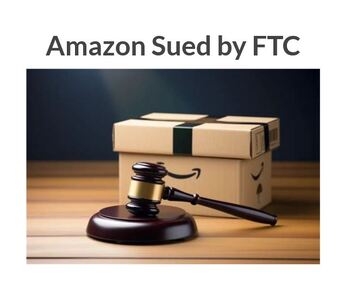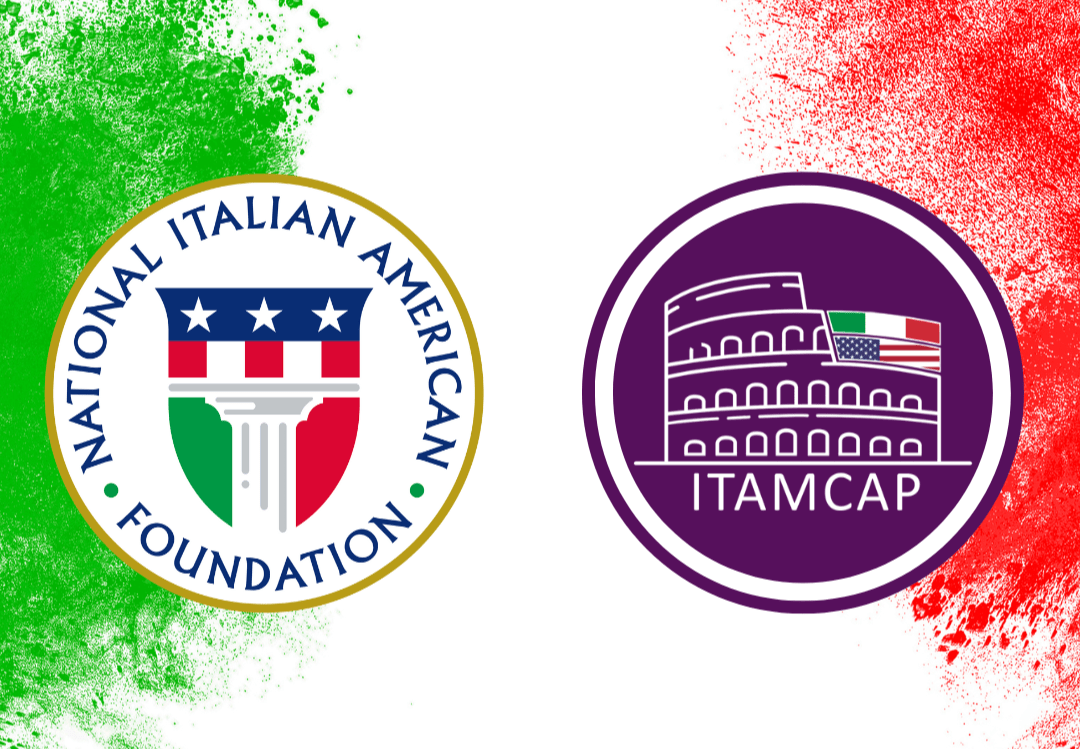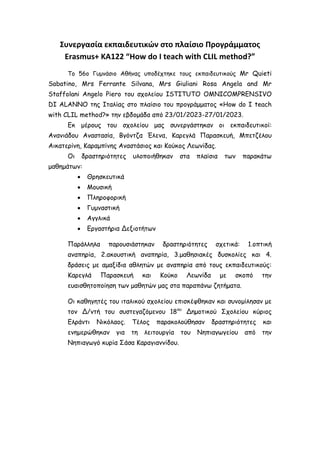Meta's Defense Begins In High-Stakes FTC Monopoly Trial

Table of Contents
Meta's Core Arguments Against the FTC's Monopoly Claims
Meta's defense hinges on several key arguments challenging the FTC's assertion of a monopoly. The company contends that the FTC's market definition is overly narrow and doesn't reflect the dynamic competitive landscape.
-
Argument 1: A Broader Market Definition: Meta argues the relevant market should encompass a wider range of platforms, including TikTok, Snapchat, Twitter, and even more niche social media applications. They contend that intense competition exists within this broader market, preventing any single entity from controlling the space. This argument attempts to dilute the FTC's portrayal of Meta as a dominant, unchallenged player.
-
Argument 2: Pro-Competitive Acquisitions: A central component of Meta's defense is that its acquisitions of Instagram and WhatsApp were not only legal but also pro-competitive. Meta asserts that these acquisitions fostered innovation, improved user experiences, and led to a more vibrant and diverse social media ecosystem. This counters the FTC's suggestion that these moves were designed to eliminate potential rivals.
-
Argument 3: No Anti-Competitive Behavior: Meta strongly refutes accusations that it engaged in anti-competitive tactics to stifle competition. They claim their business practices are consistent with fair market competition and that their success is a result of providing valuable services to users.
-
Bullet Points Supporting Meta's Claims:
- Meta's legal team has presented extensive data showcasing user growth across its platforms and highlighting the continued emergence of competing social media apps.
- Key witnesses from within Meta's leadership and its engineering teams have testified to the competitive nature of the market and the company's commitment to innovation.
- Economic studies commissioned by Meta aim to demonstrate that its acquisitions have not harmed consumers or lessened competition.
The Role of Acquisitions in Meta's Defense Strategy
The acquisitions of Instagram and WhatsApp are central to the FTC's case and, consequently, Meta's defense. The company maintains that these acquisitions benefitted users and the market overall.
-
Instagram and WhatsApp Acquisitions: Meta argues that the integration of Instagram and WhatsApp into its ecosystem expanded user choices and enhanced their overall social media experience. The company highlights features like cross-platform messaging and sharing capabilities that resulted from these mergers.
-
Legal Precedents and Mergers & Acquisitions: Meta’s defense team cites various legal precedents regarding mergers and acquisitions in the tech sector, arguing that their actions were within legal parameters and didn't violate antitrust laws. They highlight cases where similar acquisitions were deemed pro-competitive.
-
Expert Testimony on the Competitive Landscape: Meta has presented expert testimony focusing on the competitive landscape both before and after the acquisitions of Instagram and WhatsApp. Their experts aim to show that these acquisitions did not significantly reduce competition, but rather helped Meta adapt to the evolving digital landscape.
-
Bullet Points Detailing Meta's Acquisition Strategy:
- The timeline of the acquisitions is meticulously presented to demonstrate the gradual integration and the purported benefits that followed.
- Meta's strategic rationale behind each acquisition is explained, emphasizing the synergies and added value brought to both acquired companies and the wider Meta ecosystem.
- Potential counter-arguments from the FTC are preemptively addressed, anticipating and responding to criticisms of the acquisition process.
The Impact of the Trial on the Future of Digital Markets
The Meta FTC monopoly trial carries significant implications for the broader digital market. A ruling against Meta could drastically alter the landscape of tech mergers and acquisitions.
-
Future Tech Mergers and Acquisitions: A ruling against Meta could create a chilling effect on future tech mergers and acquisitions. Companies might become more hesitant to pursue similar growth strategies, potentially stifling innovation and market dynamism.
-
Data Privacy and User Control: The trial also raises important questions regarding data privacy and user control. The implications of Meta's size and data collection practices are being scrutinized, leading to wider discussions about data regulation and user rights.
-
Precedent for Other Tech Giants: The outcome will serve as a significant precedent for other large technology companies currently facing or potentially facing antitrust scrutiny. It could influence future regulatory actions and enforcement strategies concerning market dominance.
-
Bullet Points on Potential Outcomes:
- Potential fines imposed on Meta could be substantial, impacting its financial standing and future investments.
- Structural remedies, such as the forced divestiture of assets (Instagram or WhatsApp), are possible outcomes, altering the structure of the social media market.
- The trial could lead to significant changes in regulatory frameworks governing digital markets, particularly concerning data privacy and competition.
Public Opinion and Media Coverage of the Meta Monopoly Trial
Public perception and media coverage significantly influence the narrative surrounding the Meta monopoly trial. Understanding this dynamic is crucial to assessing the broader impact of this case.
-
Public Perception of Meta: Public opinion regarding Meta is highly polarized, with some viewing the company as a vital part of the digital landscape and others expressing concern over its market dominance and data practices.
-
Media Coverage and its Influence: Media coverage varies widely, ranging from in-depth analyses to sensationalized reporting. This diverse coverage influences public perception and potentially influences judicial opinions.
-
The Broader Debate on Tech Monopolies: The Meta case fuels a broader public debate regarding monopolies in the tech industry. It brings to the forefront questions about the balance between innovation, competition, and regulation.
-
Bullet Points on Public Opinion and Media:
- Polls and surveys reveal a range of opinions regarding Meta's dominance and the FTC lawsuit.
- Examples of media coverage from various sources (e.g., tech blogs, mainstream news outlets, social media) demonstrate the range of perspectives.
- An analysis of media framing reveals how different outlets shape the narrative around the trial, impacting public understanding.
Conclusion
The Meta FTC monopoly trial is a landmark case with far-reaching consequences for the future of social media and the tech industry as a whole. Meta's defense strategy focuses on refuting the FTC's claims of monopolistic practices and highlighting the purported benefits of its acquisitions. The outcome of this trial will significantly shape the regulatory landscape for digital markets and impact competition for years to come.
Call to Action: Stay informed about the developments in the Meta FTC monopoly trial. Follow this case closely to understand the implications for the future of social media and competitive landscapes in the digital world. Learn more about the ongoing Meta monopoly trial and its effects on digital markets. Understanding this complex legal battle is crucial for anyone interested in the future of technology and its impact on society.

Featured Posts
-
 Finding A New Home Americans Seeking European Citizenship After Trump
May 21, 2025
Finding A New Home Americans Seeking European Citizenship After Trump
May 21, 2025 -
 Confirmed Collins Aerospace Layoffs Hit Cedar Rapids
May 21, 2025
Confirmed Collins Aerospace Layoffs Hit Cedar Rapids
May 21, 2025 -
 The Next Chapter Of Gumball Prepare For The Unexpected
May 21, 2025
The Next Chapter Of Gumball Prepare For The Unexpected
May 21, 2025 -
 The Sound Perimeter A Study Of Musics Unifying Power
May 21, 2025
The Sound Perimeter A Study Of Musics Unifying Power
May 21, 2025 -
 Jacob Friisin Avauskokoonpano Julkistettu Kamara Ja Pukki Vaihdossa
May 21, 2025
Jacob Friisin Avauskokoonpano Julkistettu Kamara Ja Pukki Vaihdossa
May 21, 2025
Latest Posts
-
 Synaylia Sto Dimotiko Odeio Rodoy Oi Kathigites Ermineyoyn
May 21, 2025
Synaylia Sto Dimotiko Odeio Rodoy Oi Kathigites Ermineyoyn
May 21, 2025 -
 Prokrisi I Apokleismos To Mellon Tis Kroyz Azoyl Kai Toy Giakoymaki Sto Champions League
May 21, 2025
Prokrisi I Apokleismos To Mellon Tis Kroyz Azoyl Kai Toy Giakoymaki Sto Champions League
May 21, 2025 -
 Oropedio Evdomos Protasi Gia Eortasmo Protomagias
May 21, 2025
Oropedio Evdomos Protasi Gia Eortasmo Protomagias
May 21, 2025 -
 Moysiki Bradia Kathigites Dimotikoy Odeioy Rodoy
May 21, 2025
Moysiki Bradia Kathigites Dimotikoy Odeioy Rodoy
May 21, 2025 -
 Protomagia Sto Oropedio Evdomos Idanikes Drastiriotites Kai Aksiotheata
May 21, 2025
Protomagia Sto Oropedio Evdomos Idanikes Drastiriotites Kai Aksiotheata
May 21, 2025
